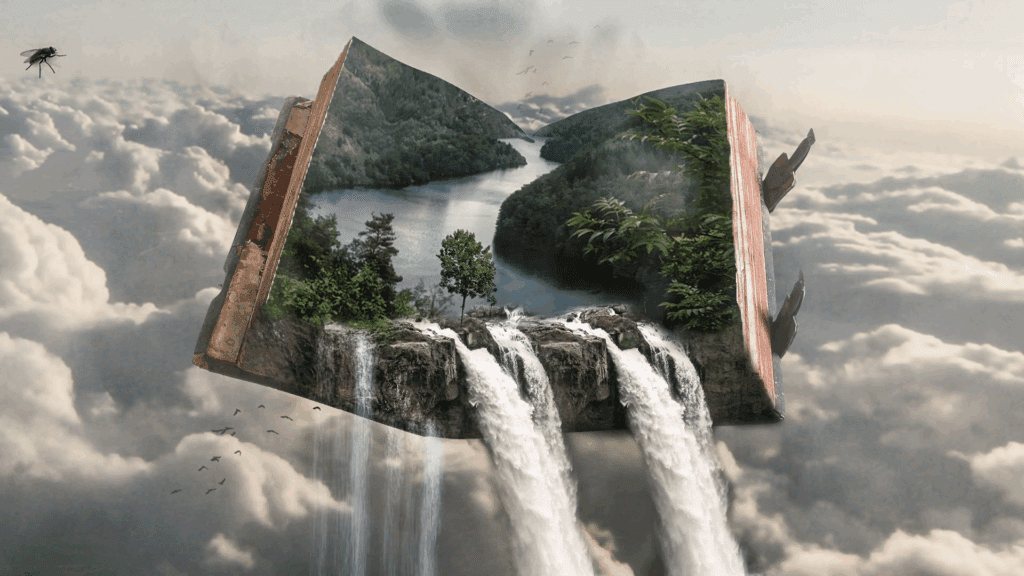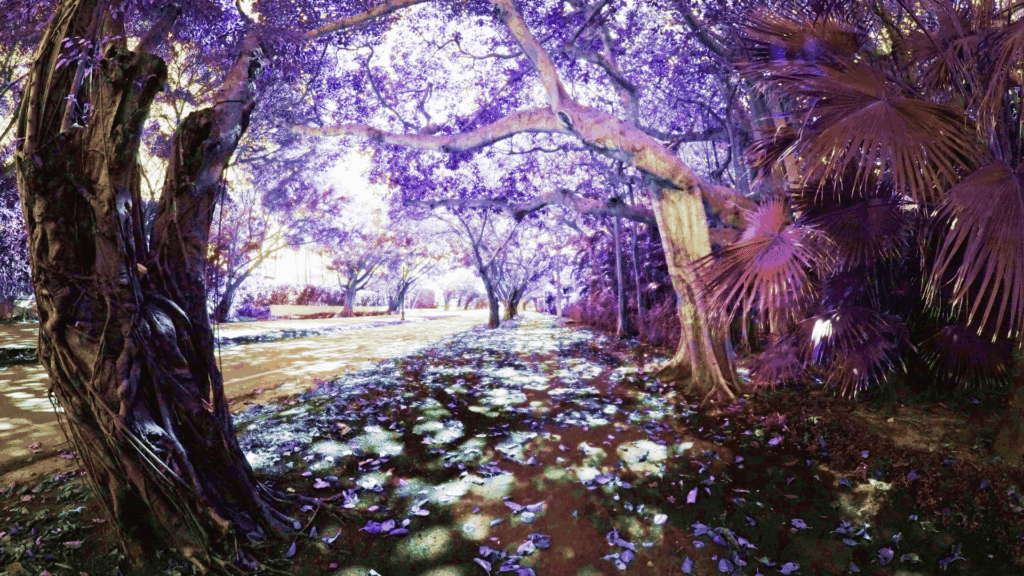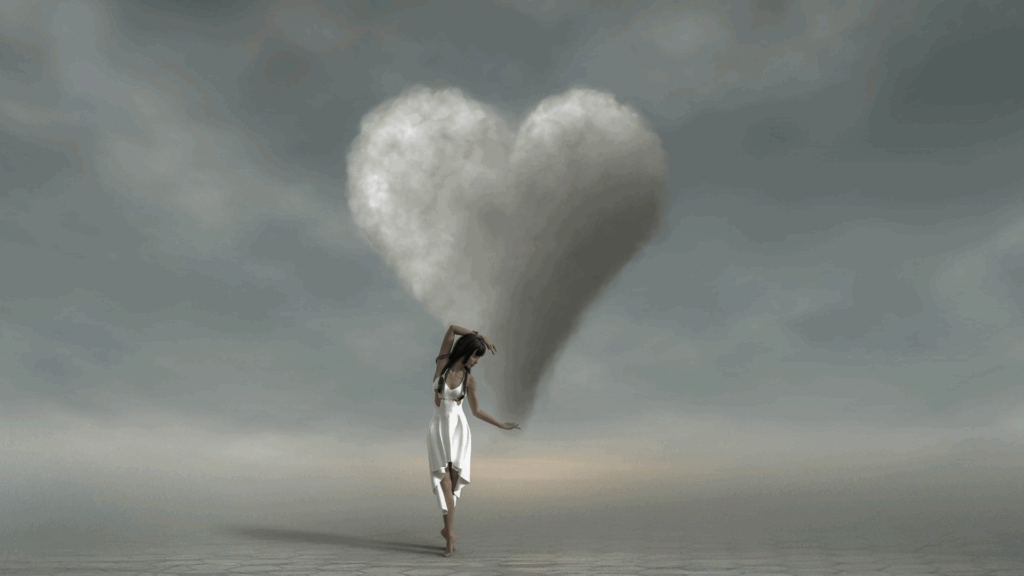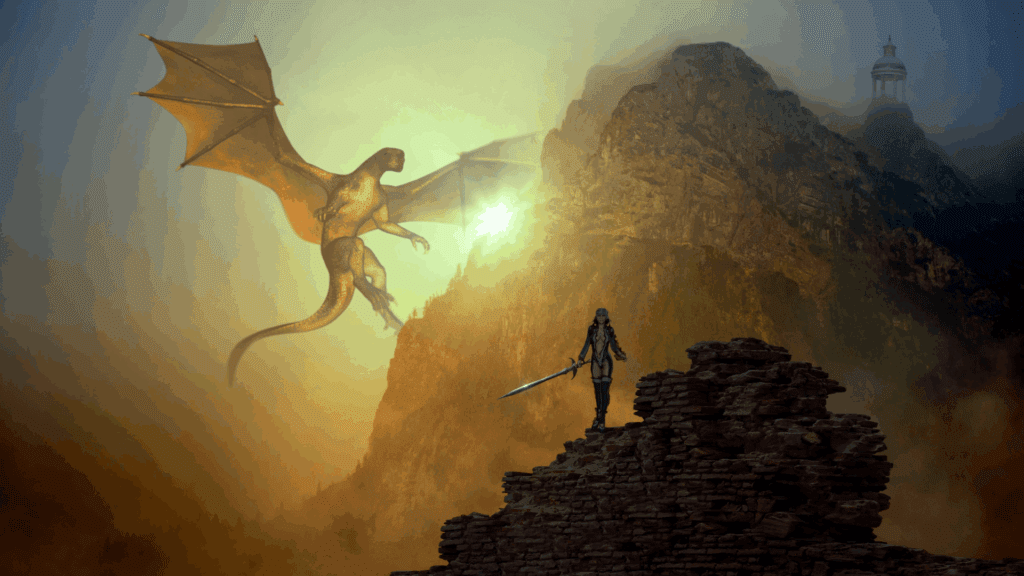🎧 Audio Version
In recent years, a literary phenomenon has swept across bookshelves, social media, and reader communities alike — the rise of romantasy. This genre, which skillfully merges the emotional intensity of romance with the wonder and depth of fantasy, has captivated millions of readers around the globe. From bestsellers flying off the shelves to viral TikTok discussions, romantasy is more than just a trend — it’s a cultural movement.
At its core, fantasy romance invites readers into beautifully imagined worlds where magic and myth meet heartache and desire. It is a genre defined by emotional stakes as high as the dragons soar and romantic arcs as intricate as the fantasy realms they unfold in. Whether it’s a mortal falling for an immortal fae or sworn enemies discovering a bond that defies centuries of conflict, this concept speaks to a deep human craving for both adventure and connection.
But why now? Why has this particular fusion of genres exploded in popularity during this era? What is it about romance that makes it feel so addictive, so immersive, and so emotionally satisfying for such a wide audience? The answer lies not just in the enchanting plots or steamy love stories, but in the psychology behind our need for escape, affirmation, and imaginative expansion.
In the sections that follow, we’ll explore the psychological, emotional, and cultural forces driving the genre’s meteoric rise — and why romantasy is perfectly positioned to meet the inner needs of modern readers navigating an increasingly complex world.

Defining Romantasy
At its essence, romantic fantasy is a genre born from fusion — a literary alchemy that blends the passionate intimacy of romance with the limitless world-building of fantasy. Unlike traditional fantasy, where romantic subplots serve as occasional diversions or catalysts, fantasy-infused romance places the emotional relationship front and center. The romance doesn’t merely support the narrative — it is the narrative, woven into the very fabric of magical worlds and mythic stakes.
From a psychological perspective, this makes fantasy romance uniquely powerful. Human beings are neurologically wired for narrative and connection. Our brains release oxytocin — the bonding hormone — when we read about emotional closeness, vulnerability, and romantic attachment. This means that stories centered on love not only engage our imagination but stimulate our neurochemistry in deeply satisfying ways. When romance unfolds in a fantasy world, this emotional engagement is amplified by the additional thrill of novelty, adventure, and myth — all of which activate the brain’s dopaminergic reward system.
The fantasy component of romantasy also allows readers to safely explore emotionally charged themes: power imbalances, betrayal, transformation, desire, and identity. Through fantastical metaphors — enchanted curses, ancient bloodlines, forbidden magic — these stories externalize internal human conflicts, making the emotional terrain both safer and more compelling to navigate. The romantic arc gives the narrative its emotional heartbeat, while the fantasy landscape provides a symbolic map of the character’s inner evolution.
From a cognitive standpoint, this fusion satisfies both hemispheres of the brain. The left hemisphere is drawn to structure, logic, and the progression of plot, while the right hemisphere thrives on emotional resonance, metaphor, and aesthetic depth. Romantasy, by design, engages both. It allows readers to immerse themselves in richly imagined settings while simultaneously investing in the nuanced development of emotionally charged relationships.
This genre also supports what psychologists call parasocial relationships — one-sided emotional bonds we form with characters who feel real and emotionally available. In romantasy, these bonds are particularly potent because the characters are often engaged in high-stakes, emotionally vulnerable scenarios. Readers don’t just observe the romance; they feel it, neurologically and psychologically, in real time.
In sum, romantasy is not just genre fiction — it’s a deeply human experience. It speaks to the limbic brain’s craving for connection and the prefrontal cortex’s desire for narrative meaning. It creates a safe, thrilling space where readers can engage their minds and emotions, expand their imaginations, and explore what it means to love and to be transformed in the process.

The Escapism Factor
In today’s fast-paced and often overwhelming world, the allure of escapism in literature has never been more pronounced. Romantasy, a genre that seamlessly blends romance and fantasy, offers readers a sanctuary from daily stresses. By transporting readers to fantastical realms filled with magic, mythical creatures, and epic love stories, romance provides a much-needed respite from reality.
From a neuroscientific perspective, engaging with romance activates the brain’s reward system. The release of dopamine during immersive reading experiences fosters feelings of pleasure and satisfaction. This neurological response explains why readers often find themselves deeply engrossed in romance narratives, seeking the emotional highs that these stories provide.
Moreover, the genre’s rich world-building and intricate plots stimulate cognitive functions, enhancing imagination and creativity. The escapism offered by love-driven fantasy is not merely a temporary diversion but a means of psychological rejuvenation, allowing readers to return to their lives with renewed perspective and emotional resilience.
Emotional Engagement
At the heart of romantasy lies profound emotional engagement — not as an accessory to the plot, but as its lifeblood. These stories don’t simply flirt with romantic ideas; they immerse readers in raw, high-stakes emotional arcs that explore love, betrayal, forgiveness, longing, and transformation. The emotional intensity is not accidental — it’s by design. These narratives are sculpted to make readers feel deeply, often viscerally, as they accompany characters through every twist of desire and conflict.
Unlike traditional fantasy, where romantic moments may be scattered like side quests, romantasy elevates the emotional connection between characters to the center of the world-building. The relationship isn’t just another subplot — it is the quest, the magic, the mystery. The romance is often what unlocks the protagonist’s power or drives the central tension of the story. This integration of emotional intimacy into fantastical stakes makes the genre uniquely immersive.
From a psychological standpoint, this emotional depth speaks directly to one of our most fundamental human needs: the need to belong, to connect, to feel seen. Reading about characters navigating nuanced relationships doesn’t just entertain — it mirrors our internal narratives. The mirror neuron system in our brains is activated by these emotionally charged interactions, allowing us to live through the characters, feel what they feel, and experience emotional catharsis in the process.
This empathetic response is not only validating, it’s therapeutic. It provides a safe space to explore emotional risk, heartbreak, and vulnerability, all while knowing that resolution-or at least emotional clarity—lies ahead. When set against the backdrop of enchanted kingdoms, ancient curses, or soul-bonded destinies, these stories become more than escapism. They become emotional simulators — stories that teach, affirm, and transform us from the inside out.
Ultimately, it’s this emotional resonance that makes the genre unforgettable. Readers don’t just remember the plot or the setting — they remember how it made them feel. And that feeling is what keeps them coming back, book after book, series after series.
The Allure of Tropes
Romantasy thrives on the creative use of beloved literary tropes. Themes like “enemies to lovers,” “fated mates,” and “forbidden love” are staples of the genre, providing readers with familiar frameworks that enhance engagement. These tropes tap into universal human experiences and desires, making stories more relatable and emotionally impactful.
From a psychological standpoint, the predictability of these tropes offers comfort and satisfaction. The brain’s pattern recognition systems find pleasure in anticipating narrative developments, leading to a rewarding reading experience. When authors introduce unique twists to these familiar themes, it stimulates cognitive engagement, keeping the reader invested and intrigued.
Moreover, these tropes often serve as vehicles for exploring deeper themes such as trust, redemption, and identity. By navigating these well-trodden paths, romantasy authors can delve into complex emotional landscapes, offering readers both entertainment and introspection.

Representation and Empowerment
Love-driven fantasy has emerged as a powerful platform for representation and empowerment. The genre increasingly features diverse characters, including strong female protagonists, LGBTQ+ relationships, and varied cultural backgrounds. This inclusivity allows a broader range of readers to see themselves reflected in the stories they love.
Representation in literature has profound psychological effects. Seeing characters who share one’s identity and experiences can boost self-esteem and foster a sense of belonging. For marginalized groups, romantasy offers narratives where they are not only present but central to the story, challenging traditional norms and expanding the scope of mainstream literature.
Empowerment in romantasy often comes through characters who overcome adversity, assert their agency, and challenge societal expectations. These narratives inspire readers to embrace their own strength and potential, making the genre not just a source of entertainment but a catalyst for personal growth and empowerment.
Community and Shared Experience
The rise of romantasy is closely tied to the vibrant communities that have formed around the genre. Platforms like TikTok’s BookTok, Goodreads, and dedicated forums have become hubs for fans to share recommendations, fan art, and discussions. These communities foster a sense of belonging and shared enthusiasm, enhancing the reading experience.
From a psychological perspective, being part of a community centered around shared interests fulfills the human need for social connection. Engaging with others who appreciate romantasy provides validation and deepens one’s engagement with the genre. The communal aspect of reading and discussing these stories adds layers of meaning and enjoyment.
Moreover, these communities often drive the popularity of certain books, influencing publishing trends and encouraging authors to explore new themes and representations. The feedback loop between creators and readers in the romance community exemplifies the dynamic and participatory nature of modern literature consumption.

Why Romantasy Matters — And Why It’s Here to Stay
In my professional and personal view, the surge in popularity of romance isn’t just a passing trend or the latest publishing craze. It’s a reflection of something deeper — a cultural and psychological hunger that this genre is uniquely positioned to feed.
We live in a world marked by complexity, disconnection, and chronic overstimulation. Many people are overwhelmed, under-nourished emotionally, and starving for meaningful engagement. Epic love saga answers that call. It offers immersive escape — yes, but not the kind that numbs. Instead, it invites readers into rich, textured emotional landscapes that mirror our longings: to be chosen, to be transformed, to be known. It gives us permission to dream bigger, love deeper, and believe in magic, not despite our struggles, but because of them.
What sets romantasy apart in my mind is how boldly it bridges two of the most powerful emotional drives: the need for wonder and the need for intimacy. It doesn’t ask us to choose between action and vulnerability, between magic and realism. It weaves them together — and in doing so, it reflects the emotional dualities we all live with. That, I believe, is its genius.
As the genre continues to evolve, I’m confident it will only grow more sophisticated, inclusive, and emotionally intelligent. Magical romance doesn’t just entertain; it expands us. And that’s what the best storytelling has always done — not simply helped us escape our lives, but helped us come back to them more whole.
If you’re drawn to this genre, it’s not by accident. It’s because your mind, your heart, your very neurobiology, is telling you that this kind of emotional storytelling matters. And I wholeheartedly agree.
#romantasy #fantasyromance #romanticfantasy #bookstagram #booktok #fantasybooks #romancebooks #booklover #bookworm #bookish #readingcommunity #bibliophile #enemiestolovers #romantasybooks #spicybooks #kindleunlimited #tbr #bookrecommendations #bookreview #readersofinstagram #bookaddict #booknerd #bookblogger #booksofinstagram #fantasyreads













